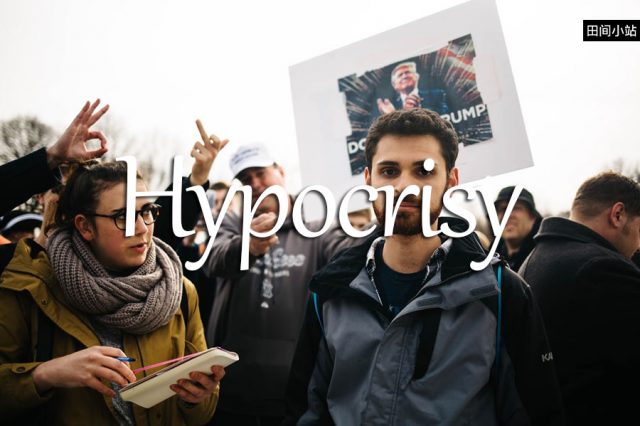
考研 TEM8
外刊用例
- He accuses outsiders of hypocrisy—did rich countries not fell their own forests?—and, sometimes, of using environmental dogma as a pretext to keep Brazil poor.
他指斥外人虚伪——富国就不砍伐森林了吗?有时他也指责他们用环境教条作借口让巴西陷于穷困。
——《经济学人》 - Hypocrisy is the tribute vice pays to virtue.
虚伪是恶毒向美德的致敬。
——《纽约时报》
基本释义
[noun] behaviour in which sb pretends to have moral standards or opinions that they do not actually have
[名词] 假装具有实际上并没有的道德标准或观点的行为
深入解读
Hypocrisy 一词源自希腊语 hypokrisis (在舞台上表演、假装),现主要用于形容一个实际上不道德、不诚实或者不信教的人假装善良、真诚或者虔诚的行为,也就是“伪善、虚伪”,比如看清某人在人权问题上的彻底虚伪(discern somebody's sheer hypocrisy about human rights)。
对于这种伪善的人,英语中直接用单词 hypocrite 表示“伪君子、伪善者、虚伪的人”,比如:
- 你这个道貌岸然的伪君子!
You sanctimonious little hypocrite!
权威用例
美国政客的言论彻底暴露了其在人权问题上奉行双重标准、以人权维护霸权的虚伪面目。
The remarks of US politicians have completely exposed their hypocrisy of adopting double standards on human rights issues and using them to maintain hegemony.
出自《2019年美国侵犯人权报告》(The Record of Human Rights Violations in the United States in 2019)。
同近义词
- sanctimony: the action or practice of acting as if one were morally superior to other people
- cant: hypocritical and sanctimonious talk, typically of a moral, religious, or political nature
- pretence: an attempt to make something that is not the case appear true
